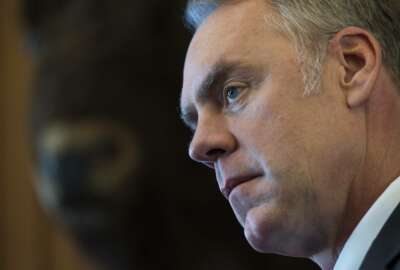
As agencies reorganize, senior executives say they lack tools to drive change
A new survey from Deloitte and the Senior Executives Association paints a grim picture of the senior executive corps.
As agencies prepare to reorganize and find new ways to rethink and restructure longstanding and outdated practices, many of government’s longest tenured, career senior executives say there’s a big, entrenched cultural challenge staring them in the face.
Many senior executives say their agencies lack the inherent mechanisms they need to empower career leaders to drive meaningful, sweeping transformation across their organizations, much less across government in general.
A new survey from Deloitte and the Senior Executives Association found senior executives are feeling rather pessimistic and jaded about their agencies’ propensity to make deep, meaningful change. More than 750 senior executives from 26 agencies responded in June to a series of questions from Deloitte and SEA.
Though 61 percent of surveyed executives said they feel empowered to drive major changes, a slim majority — 52 percent — agreed they can restructure their job responsibilities to readily respond to new ideas.
Just 28 percent of executives said they have the tools to share new ideas with other career leaders across government.
“It is time we take huge, but calculated risks,” one surveyed executive said. “Ask tons of curious questions … rather than just directing staff. Find better, smarter ways to do things easier and simpler. Increase risk appetite and don’t punish people for trying something novel.”
Half of the executives believe their agencies consider new workforce trends and how they might impact their organization’s work.
Attracting new talent, particularly young candidates with highly specialized skills in cybersecurity and technology, has been a well-documented challenge at most agencies. In fact, just 22 percent of survey respondents said their agencies are prepared to attract top talent.
Yet agencies are also struggling to recruit and develop professionals who have strong leadership skills. About 57 percent of executives said their agencies choose candidates for both their leadership and their technical expertise.
Roughly 35 percent said agencies hire career leaders based on that executive’s ability to inspire other people.
“Today, as never before, organizations do not just need more strong leaders, they need a completely different kind of leader,” one executive said.
In addition, senior executives were largely concerned about government’s overall lack of professional development opportunities, particularly for career leaders.
About 59 percent of SES acknowledged that those opportunities do exist, but positive reviews of those activities varied.
Few executives — 36 percent — said their agencies considered what professional development activities might be beneficial to their career leaders when assigning their job responsibilities.
Less than half, or 44 percent, believe government has a general strategy to develop future career leadership, and only a quarter of executives say their agencies consider “leadership” as a critical skills gap.
“Senior leaders of tomorrow will need to have more emotional intelligence,” one survey respondent said. “Too many times, we select the most ‘technical’ leader and expect them to be inspirational and a guide for others to follow. We do not spend enough time building our ‘soft skills.’ We must start to value the continual development of our existing executives if they are going to be able to lead this next generation successfully.”
The results of the SEA and Deloitte survey aren’t necessarily surprising, considering the Office of Personnel Management has found similar results to comparable questions on its own annual exit survey of career senior executives.
OPM’s latest survey of departing senior executives between August 2015 and July 2016 painted a slightly better picture than the previous year’s results, which described a senior executive corps in need of a morale boost.
Roughly 63 percent of executives told OPM they’d recommend the SES to others. It’s a noticeable increase from the previous year, when 54 percent said they’d recommend the leadership corps to others.
Yet OPM’s survey found similar concerns about agency succession planning.
About 61 percent of departing executives said their agencies had done no formal succession planning before they left the organization, and 56 percent said their agencies didn’t involve them in any preparations to plan for his or her successor.
OPM is preparing another new piece of guidance that may help: a talent management and succession planning guide designed to help agencies better manage personnel through waves of retiring executives, agency reorganizations or transitions.
Copyright © 2025 Federal News Network. All rights reserved. This website is not intended for users located within the European Economic Area.
Nicole Ogrysko is a reporter for Federal News Network focusing on the federal workforce and federal pay and benefits.
Follow @nogryskoWFED
Related Stories






